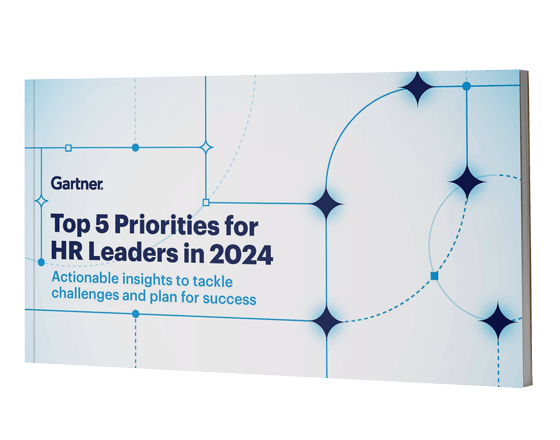How to promote equality and diversity awareness
Despite growing awareness of the importance of equality and diversity in the workplace, discrimination remains a major problem for businesses across the UK. According to the Workforce View 2020 Global report by ADP UK, over 25% of workers in the UK experienced some form of discrimination in 2020. This is an astonishing figure and one that our team at GC Index wants to work to reduce.
In this article, we will outline what defines workplace discrimination and why it’s problematic for businesses, individuals, and society. In addition, we will explore effective strategies organisations can implement to raise awareness around discrimination and help promote equality and diversity in the workplace. In doing so we hope to provide organisations with actionable insights on fostering understanding, acceptance, and celebration of diverse perspectives.
What is workplace discrimination?
Discrimination in the workplace is unjust treatment of people, based on certain prejudices. Discrimination can occur directly when an employee is treated unfavourably due to their gender, sexuality, race, religion, pregnancy and maternity, or disability.
Discrimination can also occur indirectly. These actions aren’t necessarily insidious; very often, discrimination occurs because of unconscious biases. For example, if certain rules are in place that put certain groups of individuals at a disadvantage.
There are laws in place which make discrimination in the workplace illegal. Discrimination based on protected characteristics, whether in the workplace or wider society, is strictly prohibited. According to the Equality Act 2010, these characteristics are:
- Age
- Disability
- Gender reassignment
- Marriage and civil partnership
- Pregnancy and maternity
- Race
- Religion or belief
- Sex
- Sexual orientation
There’s no legal definition of ‘putting someone at a disadvantage’. However, some examples might be excluding someone from opportunities or benefits in the workplace, causing individuals emotional and mental distress and making it more difficult for individuals with certain characteristics to do their jobs. Even if this discriminatory treatment was not intentional, it is still illegal.
Despite the Equality Act 2020 no law exists to ensure employers have a diverse workforce. As a consequence, many working environments tend to be dominated by employees of a particular gender, age, ethnicity, or religious group.
Why is workplace discrimination problematic?
Reduced engagement and productivity
The impact of discrimination on productivity and team morale should not be underestimated. For individuals and groups of employees experiencing discrimination, they often lose job motivation, care less about the quality of work they produce, and become less productive. Discrimination undermines motivation, commitment, engagement, and loyalty, eroding job satisfaction, which in turn affects productivity and performance.
Cost of staff and reputation
Discriminatory behaviour is both costly in the sense that businesses are more likely to see increased staff turnover, as well as reduced productivity from staff. Retention of staff is often lower in businesses that do not prioritise equality and diversity and more time is then taken to hire, recruit, and train new staff.
In a world where diversity and inclusion is becoming more and more prevalent, those businesses that do not meet the proper standards of equality in the workplace environment are more likely to experience a negative impact on their reputation. This could include fewer individuals wanting to work at the said business, fewer partners wanting to collaborate, fewer sponsorships or donations, etc.
Lack of diversity and representation
Lack of diversity and inclusion within a business means that the working environment is not representative nor reflective of society’s diversity. This means that these businesses will lack the ability to sympathise, understand and address the situations of a wider target audience.
If a business’s message is solely speaking to one niche of individuals, they’re missing out on the opportunity to widely expand their market to read a larger proportion of the population. Businesses need to be realistic and think about how they expect to appeal to the majority and scale up if the minds and messaging behind the business are all from the same demographic.
Unfair and unethical practices
Aside from being detrimental to businesses, discrimination in the workplace is just plain unethical. Failure to promote diversity and equality in the workplace can have a seriously negative and physical effect on the health of individuals experiencing discriminatory behaviour.
Individuals may become distressed, get anxious over coming to work, become restless, and have a poorer immune system due to the amount of stress and sleep. Feeling safe and accepted at work is a basic human right and not promoting diversity, equality, and inclusion is unethical.
How to raise awareness of discrimination and promote equality
Training
One way to raise awareness of discrimination and promote equality in the workplace is to ask HR, or specialist agencies like ‘Send it to Alex’ to give a cultural sensitivity training workshop. Employees can be given training and set examinations on how to promote diversity and equality, as well as the risks associated with not doing so.
Affinity groups
Through the creation of affinity groups, you can ensure that all individuals feel as though they have a space to speak freely and be heard. This gives individuals within your organisation the opportunity to voice any concerns they might have and appropriate measures can be implemented to resolve these issues.
Affinity groups also allow you to stay aware and celebrate different cultural/religious holidays and practices. This helps show employees you’re serious about diversity and inclusion, celebrating what is important to them, and also making the appropriate accommodations if these celebrations impact on an individuals working hours.
Language
This refers to both language internally and externally. How do you write your job adverts? How do you convey your brand’s message on social media? How do you lead internal meetings and address staff?
By analysing the language you use as a business on a day-to-day basis, and intentionally adapting it to be more inclusive and encompassing of all your staff you’ll be able to promote diversity and equality more effectively.
This includes avoiding gendering individuals, tailoring interviews to meet the needs of neurodivergent individuals, and making sure information is accessible to all, regardless of their physical or mental capabilities.
Lead by example
As a leader, it is your responsibility to ensure that diversity and inclusion are promoted within the workplace and that all employees are provided with training and awareness about why this is important.
Leaders and managers should make it a non-negotiable aspect of their business policies. Any cases of individuals experiencing discrimination should be taken seriously and appropriately investigated. Only by laying down firm rules and regulations regarding equality and diversity, can leaders spread awareness and ensure a completely fair workplace environment.
The importance of promoting equality and diversity
Promoting diversity, equality, and inclusion in the workplace is incredibly important, and can be somewhat overwhelming for leaders facing this challenge. However, there are many resources available and support for leaders and managers to help them build awareness of equality and diversity in the workplace.
The GC Index is an organisation metric to help businesses align their goals and values with their people. We want to help drive organisation forward as a collective unit in a meaningful and effective way.
We help identify and nurture key talent within organisations and place them in the roles in which they’re most likely to flourish and help drive business success. Through the data we collect we help organisations to scale up their productivity and quality of their output.
If you think the GC index sounds like something that will help your business to promote awareness around equality and diversity, then why not give one of our friendly team a call and we’d be happy to discuss how we can support you.


